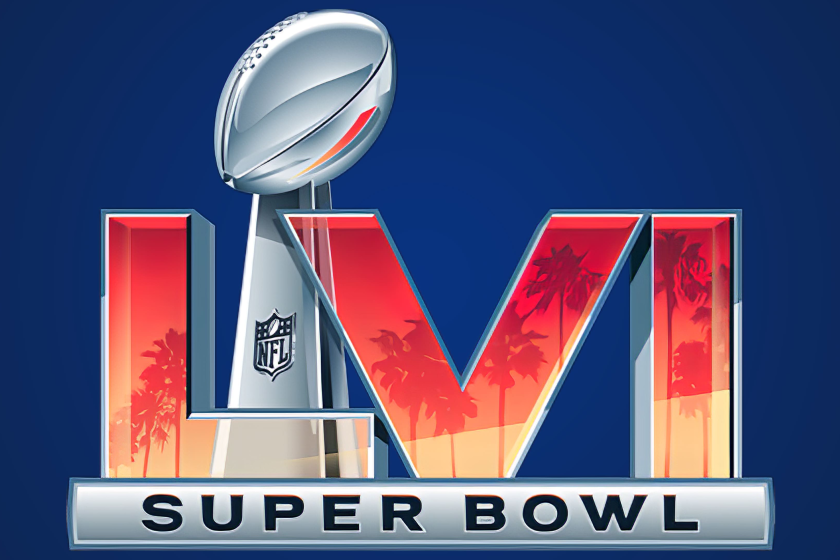Odds, lines, payouts: A guide to Super Bowl betting lingo

- Share via
Sports betting jargon permeates coverage of the Super Bowl, and all the attention paid to point spreads and odds might make you think Las Vegas oddsmakers have insights that the rest of us lack.
Not exactly. The betting lines set out by sports books are ultimately dictated by Joe and Jill Gambler, not by the bookies. The initial terms will reflect the oddsmakers’ expertise, but those terms frequently change in the days leading up to a game.
That’s because gambling sites are trying to get the bets to balance out — in other words, to make sure there will be enough lost by bettors to cover the amount won, regardless of which team comes out on top or by how much. So if too much money is wagered on one team or outcome, a sports book will adjust the point spread and the payout to entice bettors to back the other side.
To understand how all this works, it helps to speak the language. Here’s a guide to some key terms.
Moneyline bet: This is a simple wager on which team will win the game. To encourage more people to bet on the underdog, particularly if it’s a team widely expected to lose, the sports book will offer a bigger payout for winning bets on an underdog than on a favorite.
If bettors put too much money on one team, a sports book will reduce the payout for that team and raise it for the other one to try to balance the wagers. Your payout, though, will be whatever the sports book promised at the time you placed your bet.
Betting on football may be legal across much of the country now, but not in California. If you’re befuddled by the avalanche of gambling ads, we’re here to help.
Line bet: Here, bettors are wagering on whether the favorite will win by at least as many points as the sports book predicts. This is where the point spread comes in — the + or - number after a team’s name in the betting line. If a team is favored by 7 points, its line will be -7, meaning that if you bet on this squad, it will need to score at least 8 more points than its opponent for you to win. Similarly, if you bet on the other team at +7, it merely needs to lose by fewer than 7 points (or win outright) for you to collect. You’d get your money back in the case of a tie, which is why sports books usually set point spreads on half points — + or - 6.5 points instead of 7, for example.
As with moneyline bets, a sports book could adjust the payouts if the bets come in too heavily on one side of a line bet. More likely, though, is that it will change the point spread. Those changes affect only new bets, not ones already placed.
Total bet: Also called an over/under bet, this wager involves the total amount of points scored by the two teams, regardless of who scores them (or who wins). You’re betting on whether the total will be over or under the amount currently predicted by the sports book.
In-game bets: Depending on the sports book, bettors can make new wagers, often with new odds, after the game starts. For some bettors, in-game betting is a hedging strategy to help adjust for unexpected events. For others, it’s just a chance to put more money at risk.
Super Bowl visitors, don’t try to get from Santa Monica to Pasadena for coffee, or Inglewood to Anaheim to do something touristy. Try these instead.
Proposition bets: These wagers involve things that may not happen. Right now, for example, you can place a bet that President Biden will nominate California Supreme Court Justice Leondra R. Kruger for the U.S. Supreme Court. For the Super Bowl, there will be a raft of proposition bets involving such things as who’ll win the coin toss, how many songs will be played at halftime and who’ll be the game’s most valuable player.
Calculating payouts: Sports books pay winners based on the odds set at the time of the wager. But the odds are often expressed in a, well, odd way: as a positive or negative three-digit number. To figure out how much a winning bet will pay in addition to the amount bet, you have to convert that number into a decimal, then multiply it by the amount wagered.
If the team is favored — it has a negative number — calculate the decimal by dividing 100 by the negative number, ignoring the negative sign. For example, if the team is -200, the decimal would be 100/200, or .5, so a $10 bet would pay $10 plus $5. If the team is an underdog — it has a positive number — calculate the decimal by dividing the positive number by 100. For example, if the team is +150, the decimal would be 150/100, or 1.5. So a $10 bet would pay $10 plus $15.
Sports books typically use the odds to guarantee themselves a percentage of every winning bet. So if neither team is favored, both would typically have odds of -110, meaning they’d pay $9.09 plus $10 on a $10 bet.
More to Read
Go beyond the scoreboard
Get the latest on L.A.'s teams in the daily Sports Report newsletter.
You may occasionally receive promotional content from the Los Angeles Times.










![Vista, California-Apri 2, 2025-Hours after undergoing dental surgery a 9-year-old girl was found unresponsive in her home, officials are investigating what caused her death. On March 18, Silvanna Moreno was placed under anesthesia for a dental surgery at Dreamtime Dentistry, a dental facility that "strive[s] to be the premier office for sedation dentistry in Vitsa, CA. (Google Maps)](https://ca-times.brightspotcdn.com/dims4/default/07a58b2/2147483647/strip/true/crop/2016x1344+29+0/resize/840x560!/quality/75/?url=https%3A%2F%2Fcalifornia-times-brightspot.s3.amazonaws.com%2F78%2Ffd%2F9bbf9b62489fa209f9c67df2e472%2Fla-me-dreamtime-dentist-01.jpg)



